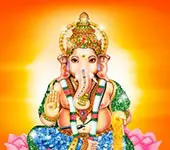यदृच्छया चोपपन्नं स्वर्गद्वारमपावृतम्।
सुखिनः क्षत्रियाः पार्थ लभन्ते युद्धमीदृशम्।।
Yadricchaya chopapannam svargadvaram apavritam,
Sukhinah kshatriyah Partha labhante yuddham idrisham.
Meaning:
For Kshatriyas (warriors), O Partha (Arjuna), a war like this comes by chance and opens the gates of swarga. Such a war is a rare blessing.
Context:
Arjuna is hesitant to fight in the Kurukshetra war, feeling conflicted about battling his own family. Krishna reminds him of his duty as a Kshatriya. A righteous war is a rare opportunity for a warrior to uphold dharma and attain swarga. Krishna encourages Arjuna to embrace his duty without attachment.
Explanation:
In this verse, Krishna explains the importance of duty and righteousness (dharma) to Arjuna. As a Kshatriya (warrior), Arjuna’s primary duty is to protect justice and uphold dharma, even if it involves fighting in a war. Krishna tells Arjuna that such an opportunity, where one can fight a righteous battle, is rare and opens the gates to swarga.
The verse emphasizes that fighting for a just cause is not just a duty but also a path to spiritual growth and higher realms. By fulfilling his duty selflessly, without personal desires or attachments, a warrior like Arjuna can achieve honor and spiritual rewards. Krishna is encouraging Arjuna to rise above personal emotions and see the greater purpose of his role in the cosmic order.
In today’s context:
Ravi worked in a government office known for inefficiency and corruption. One day, he discovered that a senior official was embezzling funds meant for a welfare scheme. Ravi knew exposing this would put his job and safety at risk. Yet, he couldn’t ignore the plight of those who depended on the scheme for survival.
After much inner conflict, Ravi decided to report the corruption to the higher authorities. His colleagues warned him against it, saying it could ruin his career. But Ravi believed it was his duty to stand up for justice. He filed a detailed report, backed by evidence, and alerted the media.
The official was investigated and punished, and the stolen funds were recovered. Though Ravi faced temporary challenges, he earned the respect of his community. His act of courage inspired others to speak up against wrongdoing.
This reflects the wisdom of the verse: sometimes, doing what is right feels difficult and risky, but it upholds dharma and creates a lasting impact.
Highlights from traditional commentaries:
Sri Abhinavagupta
He explains that the duty of a Kshatriya is inevitable and must be embraced without hesitation. The focus is on the righteousness of fulfilling one’s dharma, especially in the context of a battle aligned with dharma.
Sri Madhusudan Saraswati
He clarifies that a war fought for justice is not sinful, even if it involves killing revered individuals like Bhishma and Drona. The battle is seen as a divine opportunity for Kshatriyas to fulfill their dharma and attain swarga without moral repercussions.
Sri Purushottamji
He highlights that such a war is granted by divine will. The phrase 'yadricchaya' indicates the war as a rare blessing from God, meant for the fortunate Kshatriyas to attain both worldly and spiritual rewards.
Sri Shankaracharya
Shankaracharya stresses that the war, which comes uninvited, is like an open gate to swarga. He encourages Kshatriyas to see it as a duty and embrace it without reluctance, as it leads to the fulfillment of their dharma.
Sri Vallabhacharya
He describes this war as a path to liberation, stating that such battles come rarely and only to the fortunate. The focus is on the divine arrangement that aligns with Kshatriya dharma.
Sri Anandgiri
He explains that the war is ordained for Kshatriyas, much like Vedic rituals, and leads to swarga without delay. The commentary dismisses doubts about the righteousness of such battles, emphasizing their alignment with dharma.
Sri Dhanpati
Dhanpati states that the war is a gift of destiny, appearing without effort, and provides an immediate path to swarga. He highlights the divine nature of such an opportunity for Kshatriyas.
Sri Neelkanth
Neelkanth emphasizes that the war is divinely ordained and offers a direct path to swarga. It is an opportunity that only fortunate Kshatriyas receive.
Sri Ramanuja
Ramanuja explains that this war is an effortless means to supreme happiness. He describes it as a divine blessing that fortunate Kshatriyas receive, leading to both earthly and heavenly rewards.
Sri Sridhara Swami
He clarifies that such a war, uninvited and righteous, is an open gateway to swarga. He further counters Arjuna's doubts by stating that fighting this battle fulfills a Kshatriya’s dharma and brings immense rewards.
Sri Vedantadeshikacharya Venkatanatha
He elaborates that the war is a manifestation of past virtuous deeds and is a direct means to supreme happiness. The commentary also addresses doubts about killing in battle, emphasizing that it is free from sin when aligned with dharma.
Comments
Read more comments
Knowledge Bank
Can a bhakta ignore shastras (scriptural teachings)?
No. As per Narada-bhakti-sutra.12, even after attaining oneness with Bhagavan, he should endeavor to protect the shastras. Scriptural discipline promotes and strengthens bhakti. The Shastras aid in achieving purity of mind. Bhakta performs duties enjoined by shastras as service to Bhagavan.
What is Kundalini good for?
Kundalini awakening can lead to spiritual realization and samadhi. When kundalini shakti rises up the spinal cord and reaches sahasrara, union of Shiva and Shakti takes place. This is the experience of the ultimate truth of non-duality. A practitioner of Kundalini yoga obtains many siddhis.
Recommended for you
Why An Army Of Monkeys?

Why an army of monkeys? Why not an army of brave warriors? Would it have been difficult for Lord Rama to organize an army of men? Or why not an arm....
Click here to know more..Yathothkari Perumal Temple, Kanchipuram

Learn about the divine power of Yahtothkari Perumal Temple, its history and significance. Be blessed by its spiritual energy and experience a spiritua....
Click here to know more..Ganesha Panchachamara Stotram

lalaat'apat't'alunt'hitaamalendurochirudbhat'e vri'taativarcharasvarotsararatkireet'atejasi. phat'aaphat'atphat'atsphuratphanaabhayena bhoginaam shiva....
Click here to know more..